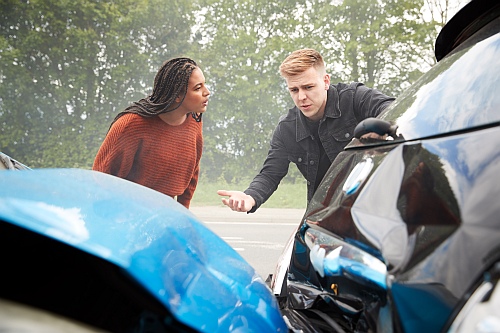Trips to the home of friends are typically characterized as cheerful events. However, when a property is not maintained in a safe condition, injuries can happen and lead to often unwelcome litigation. The recent decision of the Georgia Court of Appeals in Rogers v. Woodruff deals directly with this undesirable situation and reviews the current rules of liability that apply to “social guests” injured at the homes of others.
The injuries that led to the Rogers litigation occurred on the night of July 20, 2008. On that evening, the plaintiff had been invited to the home of the defendant by the defendant’s daughter, who resided in an apartment that was built above a detached garage on the property. The defendant had purchased the property in 2006, and the stairway and deck leading up to the apartment above the garage had been built in 1996 by the previous property owner, a local residential builder, who swore by affidavit that county officials had inspected and approved the modifications shortly after they were made. Prior to their arrival at the home, the plaintiff and the defendant’s daughter had been at a bar in Carrollton, Georgia drinking with another friend. Following this spell at the bar, the plaintiff, the defendant’s daughter, and two others went back to the defendant’s daughter’s apartment. There is some dispute about what happened thereafter on the landing outside the apartment, which may have involved a scuffle between the plaintiff and a different gentleman who had been invited to the home. However, it is undisputed that the railing of the deck gave way, and the plaintiff fell from the landing onto the concrete below.
The plaintiff sustained serious injuries as a result of the fall, and he brought suit against the property owner, arguing that the defendant failed to inspect the deck despite evidence that it had not been built to code. To support this argument, the plaintiff deposed an expert witness in the area of construction, who testified that his examination of the deck revealed that the deck’s railing violated building code requirements for minimum height and load capacity. The defendant moved for summary judgment, but the trial court denied this motion, finding that there existed a genuine issue of material fact as to whether the defendant violated her duty of care by failing to have the deck inspected despite evidence that it was presently not built to code.
However, the Georgia Court of Appeals disagreed with this assessment of the facts and reversed the decision. Under Georgia law, the standard of the duty of care a property owner owes to those on his or her property varies based on the nature of the invitation. See OCGA § 51-3. In the case at hand, the plaintiff was considered a “licensee” and, thus, the property owner would breach her duty of care “only for wilfully or wantonly allowing a dangerous static condition . . . to cause … injuries.” Thompson v. Oursler, 318 Ga. App. 377, 378 (733 SE2d 359) (2012). The standard for willfulness or wantonness in this context is quite high and is only found in relation to a defective condition when:
“1) the [property owner] knows or has reason to know of the condition and should realize that it involves an unreasonable risk of harm to licensees, and should expect that they will not discover or realize the danger, 2) he fails to exercise reasonable care to make the condition safe, or to warn the licensees of the condition and the risk involved,” Hicks v. Walker, 262 Ga. App. 216, 218 (585 SE2d 83) (2003), and 3) “the licensees do not know or have reason to know of the condition and the risk involved,” Thompson, 318 Ga. App. at 378.
The Court of Appeals agreed with the trial court that the railing was a static condition. However, the Court of Appeals noted that only one witness, who was neither the defendant nor the other occupants of the property, testified as having ever seen the railing wobble. In addition, the plaintiff testified that he too had not noticed any defect with the railing prior to the fall. Accordingly, there was no evidence that would suggest actual knowledge of the defect. Furthermore, with respect to constructive knowledge of the defective condition, the court found that the expert testimony was insufficient to create a material dispute of fact that could overcome a motion for summary judgment. Although the expert witness testified that the railing did not meet 2008 standards, he did not know when the deck was built or testify to the quality of its construction in 1996 when, according to the undisputed evidence, it passed inspection by the county. Since this defect was not of an obvious or intentional variety such that the defendant would certainly have had prior knowledge of its existence and risk, it could not be said the defendant breached the applicable duty of care.
Although many would find it difficult to sue a friend or even an acquaintance, the law does hold people accountable for failing to properly consider the safety of those on their property. However, as we saw in this case, the standard is much higher for social guests than it is for one who is injured on commercial property. Accordingly, if you were injured at the home of another during a social gathering and need recovery for your injuries, you should get representation from counsel with ample experience in premises liability. The Atlanta premises liability attorneys at the Law Office of Terrence R. Bethune have many years of experience in this area as well as other areas of personal injury law and can offer guidance regarding the strength of your possible suit. For a free consultation on your Atlanta premises liability case, click here or call 1-800-487-8669.








